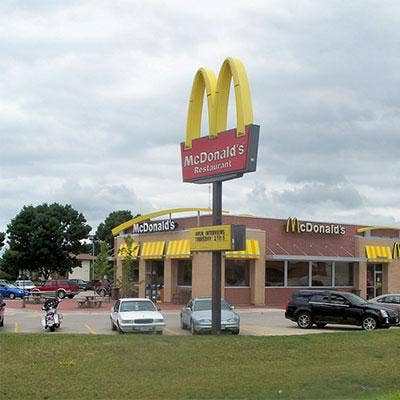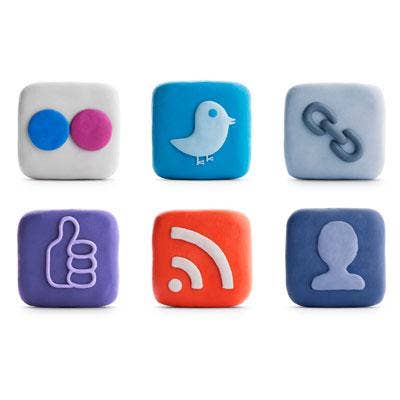McGoogle: 7 Things McDonald's Can Learn From Google

Two Very Different Companies
Google and McDonald's are two of the world's largest companies and most recognizable brands. Beyond that, there really doesn't seem to be much the iconic multinationals share in common.
But McDonald's business has been in a gradual decline for years, and the company seems in need of some "Googliness." The world's most ubiquitous burger chain may soon get a dose from Margo Georgiadis, president of Americas at Google, who was recently named to the fast-food giant's board of directors.
Georgiadis' appointment seems in tune with McDonald's current push to become a more digitally savvy company. McDonald's, trailing competitors in implementing a digital strategy, is now building out its digital workforce and infrastructure.
We checked in with a few solution providers to find out what McDonald's might learn from Google.

Supersize Digital Strategy
McDonalds is well behind their competitors when it comes to the company's digital strategy, said Allen Falcon, CEO of Google solution provider Cumulus Global, Westborough, Mass.
"Competitors have payment and loyalty apps and much more robust footprints on social media -- Twitter, Facebook, Instagram, Google+, etc. This is good move to drive [McDonald's] towards a younger demographic that is more health-conscious and drawn to outlets like Chipotle," Falcon said via email.
If McDonald's wants to succeed with its own digital strategy, it should consider sophisticated IT infrastructure and cloud-computing resources that can link franchise restaurants around the world, he said.
The success of these kinds of initiatives can hard to measure, but even if they don't drive customer engagement or more Big Mac sales, they can change the public's perception of the company.
Like so much relating to social media, it's about image, and right now, the Golden Arches look a little dated.

Tech Employees Should Be Loving It
McDonald's is in the process of recruiting hundreds of tech workers to staff new offices from which it will drive digital strategy.
The fast-food giant should undertake this project with the understanding that talented young tech workers have certain expectations that don't always fit in with the traditional corporate employment model.
They want flexibility, they want the chance to be creative, they want a less-structured workplace—let's face it, they want to work for Google.
Google is masterful at identifying talent. The tech giant's hiring techniques test potential employees' abilities to solve new problems, assume and relinquish leadership roles and take responsibility for the success of projects while remaining humble team players.
And even Ronald McDonald would be blown away by the perks.

Connect to Customers Everywhere
McDonald's once had the best strategy possible for being prevalent in the lives of its customers: it had restaurants just about everywhere they went.
A famous early ad campaign asked customers to "Look for the Golden Arches"—and they weren't hard to find.
But now the company seems to be losing touch, solution providers said.
"People don't think of McDonald's as an 'innovative' or 'techie' company -- that's potentially how [Georgiadis] can help," said Tony Safoian, CEO of Los Angeles-based SADA Systems, via email. "It seems they are losing the connection to the mobile generation. She can help bridge the gap."
There's no company like Google in its ability to reach into its users lives—soon Google will be in your mobile phone, in your house, in your car and in your clothes.
Which isn't to say McDonald's should be in all of those places.

McDonald's+
In much the same way those colorful boxes help children so powerfully connect with Happy Meals, social networks attract the ones that have already grown up.
McDonald's has been ineffective in leveraging the power of social networks to build brand loyalty.
Many would argue Google+ isn't the best example here for social chops.
But just because Google's social network never rose to anywhere near its initial hype, and certainly doesn't keep Facebook execs up at night, it actually serves as an effective platform for connecting users across Google's portfolio. In that sense, Google+ achieved what any good social network does—collect data on us as we use online products.

McData
One great benefit of building out world-class IT infrastructure and digital engagement tools is they provide you with lots of data. Not only about your supply chain, inventory, and financial results, but also about your customers and their preferences.
McDonald's was awfully slow in responding to the trend of the past two decades toward lower calorie, healthier and more natural foods at a time when new chains like Chipotle and Panera Bread were capitalizing on changing dietary attitudes.
Maybe they wouldn't have missed the boat if they had better data gathering and analytic tools.

Commodity Nuggets
For all its computing prowess, Google doesn't really invest in state-of-the-art hardware. Instead, the search engine leader has maintained its founding position that everything it needs to do can be done on commodity equipment.
The lesson, perhaps, is that with innovation, quality can be achieved in bulk. And quality is what today's consumers want, especially when it involves what they put in their mouths.
If Google can leverage off-the-shelf servers to power a good fraction of the world's online activity, surely a fast-food restaurant can give us quality bits of chicken, beef patties and French fries.

Moonshots for Mac Tonight
People sometimes wonder how seriously to take Google when it reveals its moonshots like self-driving cars, hot air balloons and smart contact lenses. Usually the skepticism ends with the first functional prototype from Google X labs.
Beyond the ultimate business value of those products, they instill a company mindset of thinking into the future.
McDonald's missteps of late have resulted from myopic thinking. While it carefully tinkered with its menu and marketing campaigns over the past two decades, upstarts were reinventing fast food.
Now those competitors are also global forces, and they're continuing to experiment with high-tech methods for engaging customers. If McDonald's wants to carry its burger-slinging dominance deep into the 21st Century, it might want to start thinking about its own moonshots.